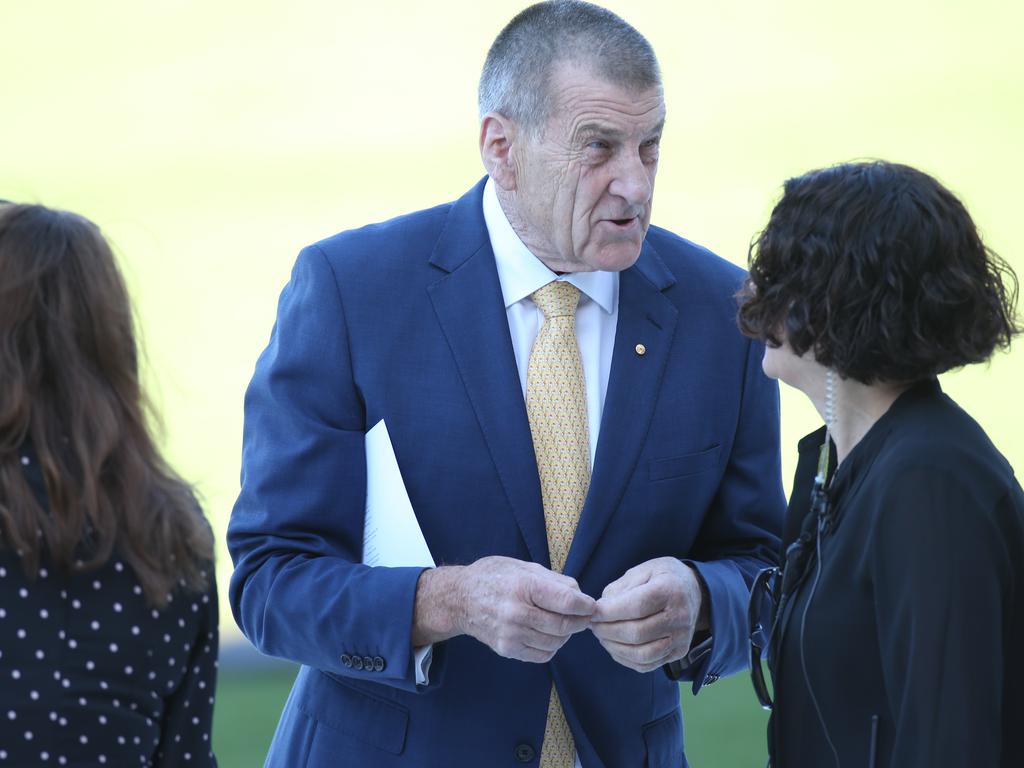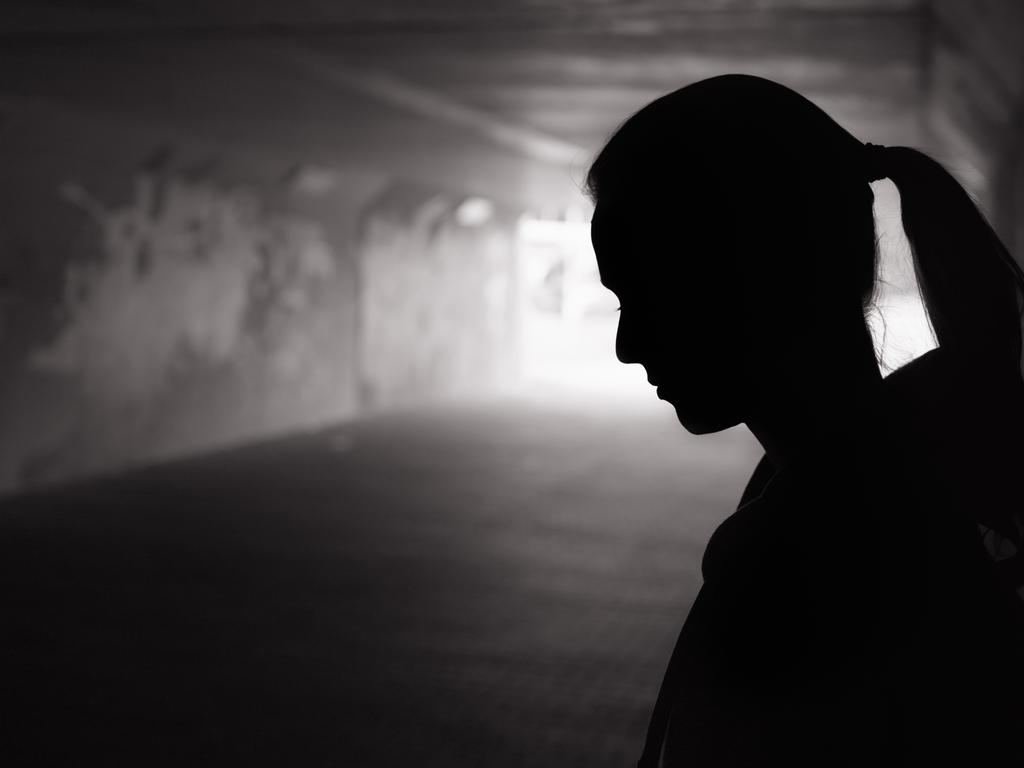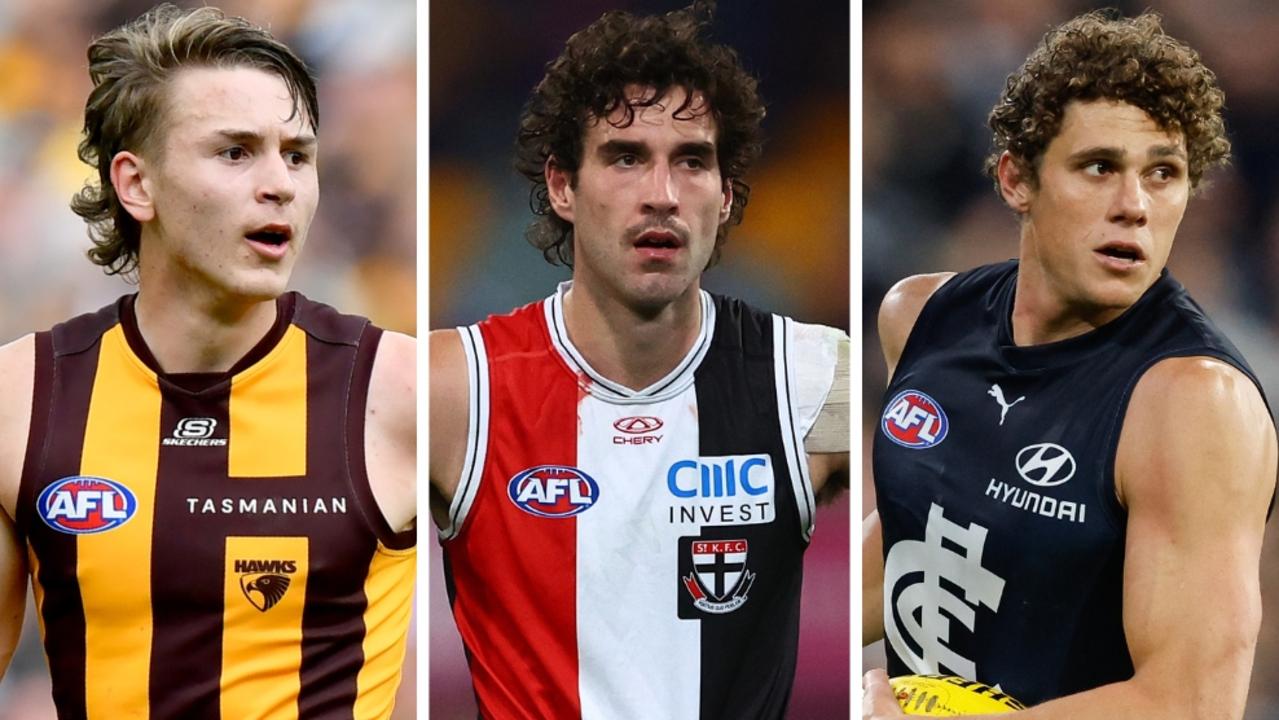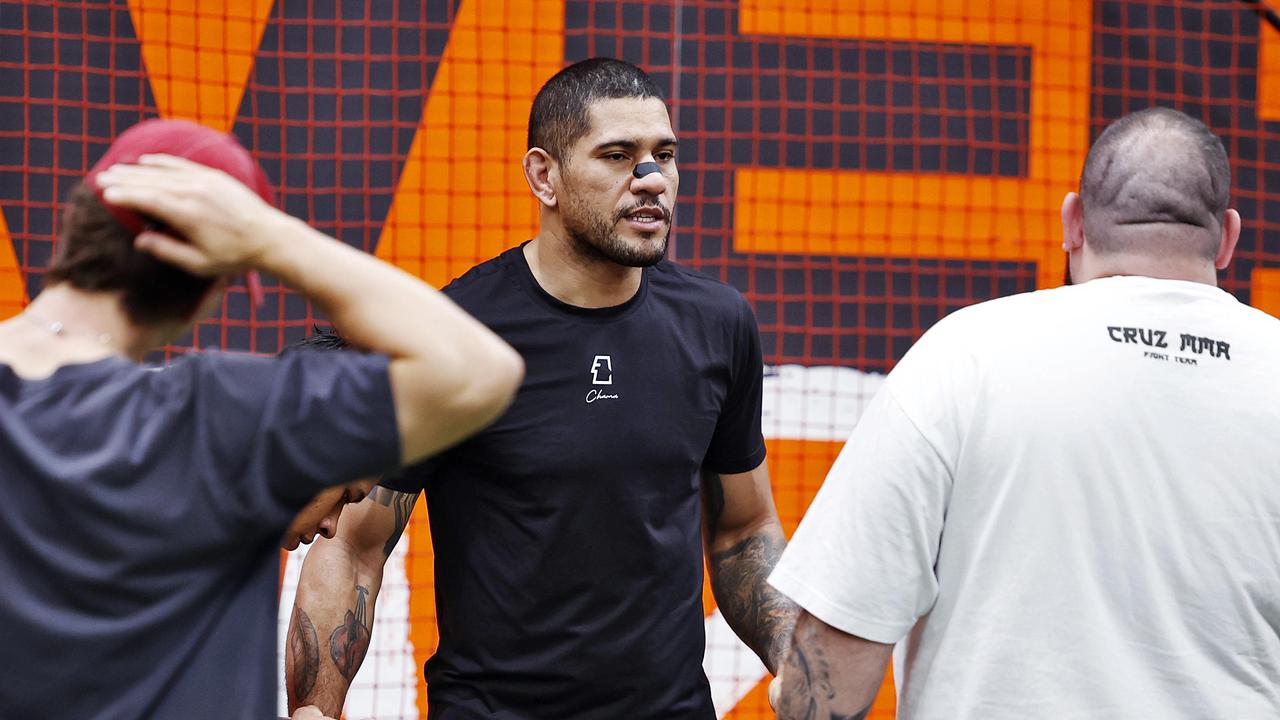Don’t sign an NDA: lawyer for Jarryd Hayne and Kobe Bryant victims warns of hush-money deals
Non-disclosure agreements are a “horrible disservice to the community”, says the lawyer who won sex-assault settlements for women who accused Jarryd Hayne and Kobe Bryant of rape.
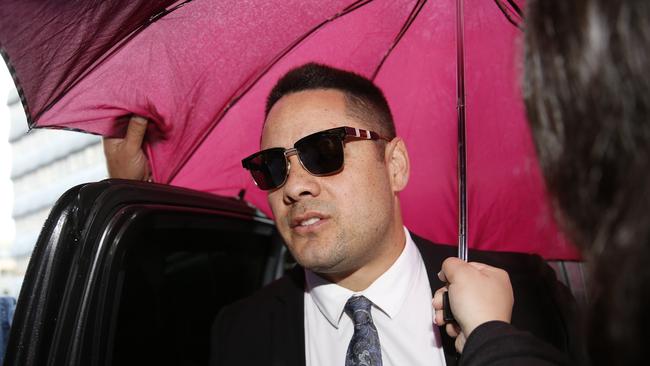
Non-disclosure agreements are a “horrible disservice to the community”, says the lawyer who won a sex-assault settlement from NRL superstar Jarryd Hayne.
John Clune, who has also represented complainants in sexual assault lawsuits against high-profile figures including late basketball star Kobe Bryant and US Supreme Court Justice Brett Kavanaugh, says he believes NDAs are “a bad thing for everybody except the offender” because they prevent women ever speaking to a counsellor or even their families about what happened.
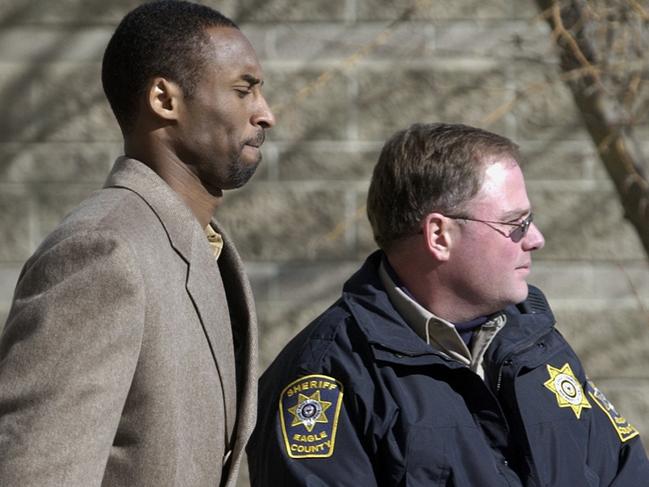
Clune was speaking after The Australian’s revelations that women who worked in AFL have routinely been silenced with confidentiality agreements over complaints about workplace bullying and harassment.
Hayne paid compensation to an American woman, known only as JV, over a 2015 assault that she alleged he committed while he was playing in the National Football League.
The woman — who had been a virgin — described meeting Hayne in a San Jose nightclub and waking the next morning in his apartment, with pain and bleeding from her genitalia.
Hayne in 2019 agreed to a financial settlement with JV, negotiated by Clune.
In May 2021 Hayne was sentenced to three years and eight months imprisonment for sexually assaulting a NSW woman who suffered bleeding after the incident.
The Australian woman alleged Hayne had bitten or otherwise wounded her, but he was not convicted of the biting charge.
Clune said in the 2015 case, JV was intoxicated and was unable to recall how her injuries occurred — but she would not rule out the possibility that Hayne had bitten her.
“My client was in significant vaginal pain for weeks, if not months after the assault, which is not common in sexual assault. So I don’t think she would rule (biting) out, but she was not able to recall things of that nature,” Clune said.
While criminal charges were definitely the first preference for most of his clients, Clune said the reality of the criminal justice system meant survivors often felt they had more chance of success in a civil action.
“I think most women, if they could wave a magic wand, they would more often than not pick a criminal conviction and criminal punishment. (But) I think people in the US have seen such intense scrutiny on women who report to the police that that scares away a lot of the women from reporting it in the first place.
“We’re seeing more and more women turn to the civil justice system where, you know, it may not be ideal, but they can have a little more control. Nobody else besides the woman and (her) lawyer decide whether or not a case is filed or a settlement is negotiated. And even though money is not the same as seeing somebody go to prison for three years, it’s something. It’s some consequence. You know – drivers slow down when they get a speeding ticket even thought they’re not really that significant of a penalty. It’s something, where – you know, the criminal justice system largely fails.”
Clune, a former prosecutor, said survivors and lawyers often had to face the reality that a jury conviction was unlikely even when a victim’s allegations were highly plausible.
He said many lawyers, including himself as a younger advocate, assumed that a nondisclosure agreement would be required to reach a settlement with a footballer, but he no longer believed that to be the case.
In 2004 Clune won a settlement payout from Bryant, who was accused by a 19-year-old woman of rape. Bryant was charged with sexual assault, but the woman decided not to give evidence in a criminal trial and the charges were dropped.
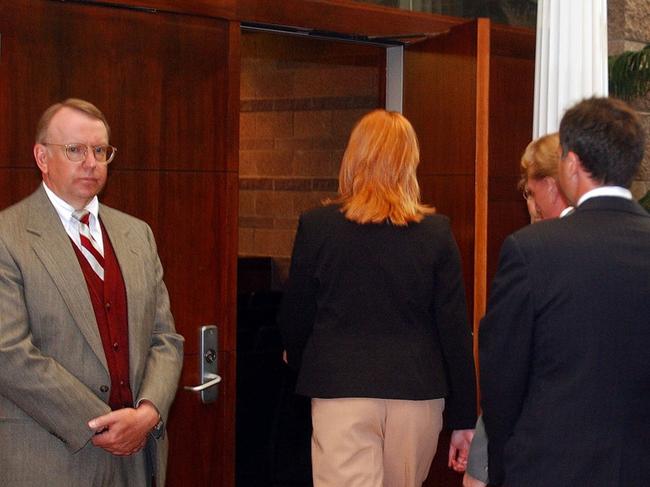
She sued Bryant and he issued a public apology and settled the matter for an undisclosed sum.
In his apology, Bryant said: “Although I truly believe this encounter between us was consensual, I recognise now that she did not and does not view this incident the same way I did. After months of reviewing discovery, listening to her attorney and even her testimony in person, I now understand how she feels that she did not consent to this encounter.”
The woman has never told her story publicly.
Clune said he now tries to avoid NDAs wherever possible.
“They (NDAs) are a horrible disservice to the community. I think historically they were just kind of expected that that’s what you had to agree to. And so I think that not just women, but the lawyers that were representing these women, myself included. We’d just presume that if you’re going to negotiate something against a high-profile individual, whether it’s Harvey (Weinstein) or an athlete or whatever, that we would have to include, you know, some sort of strict confidentiality agreement.
“And the reality – Harvey’s a great example of this, you know, because we see the number of women that he was allowed to continue to sexually abuse though the use of NDAs.
“We’re starting to get to an era where those are less common, where there’s less that’s going to be agreed to. But, you know, by and large, that’s still the greatest currency that the survivor has to give to the offender is just the ability to pay for some sort of peace of mind that it’s not going to blow up.
“We absolutely try to avoid them. We’ve hated them for years. I mean, I in my younger days, I had some cases that, you know, if I felt like as I saw the years progress, I saw the real harm in the nondisclosure terms, not just because the offender can then offend on other people, but it’s really harmful for a survivor of sexual abuse. You want to talk about what happened and they don’t need to go on 60 Minutes to talk about their abuse, but to be able to just kind of talk openly to whomever they need to over the course of their life, whether it’s friends or their future spouse or whomever, you really need that as a part of your recovery.”
“I do think they (NDAs) are a bad thing for everybody except for the offender.”

